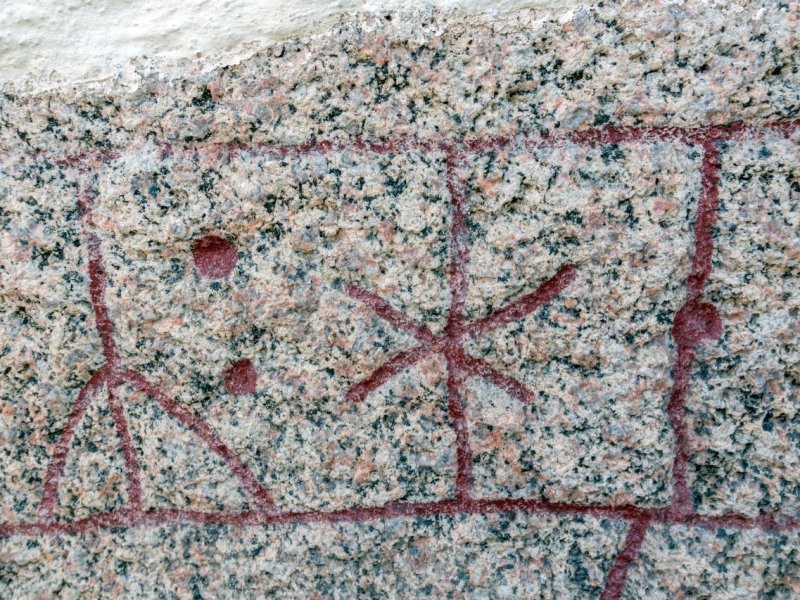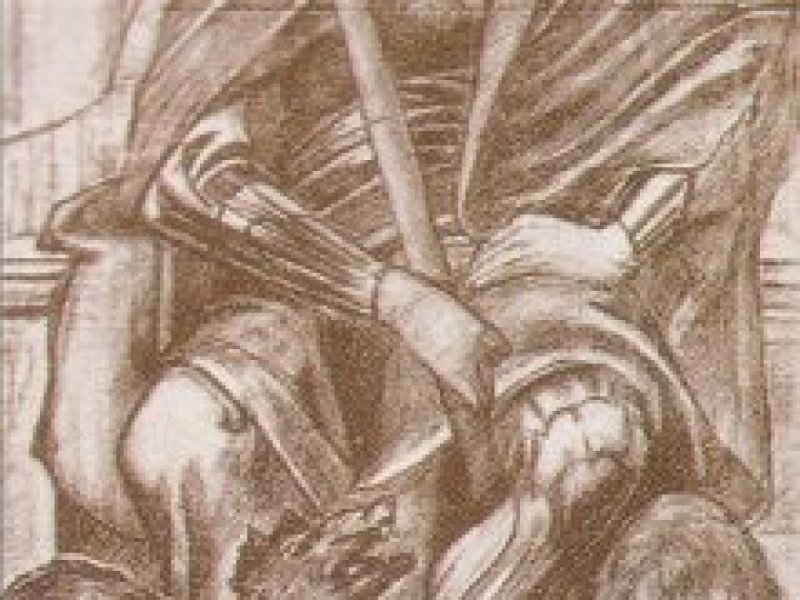Tyr
One-handed god of war. Tyr was possibly the son of Odin and of Frigg or the giantess Fjörgyn (Fjorgyn), and younger of brother of Thor. Snorri Sturluson says that his father was Odin in the keening of Tyr. Otherwise he was known as the son of the giant Hymir, particularly in the poem called Hymiskvida of the Poetic Edda.
Tyr seemed to be one of the earliest gods to be worshiped by the Teutonic people, known as Tiw or Tiwaz. Tiwaz (Tyr) was the most important god to the Germans at the height of Roman power, as the chief sky-god, the god of war and justice. In Scandinavia, however, Odin supplanted Tyr as supreme god. Odin inherited many of Tiwaz's duties as the war-god, reducing Tyr to a secondary role.
Tyr was also the patron god of justice and the formality of war, particularly of fair treaties. Tyr had a reputation of keeping his oath, a guarantee of good faith. He was often seen carrying either a sword or spear of justice.
Unlike the Greek god Ares, Tyr was the bravest of all the gods. He was the god of courage and boldness. Tyr sacrificed his hand in an early encounter with Fenrir, an offspring of Loki and the giantess Angerboda. In order to bind Fenrir, the gods pretended to play a game with the monster, Tyr placed his hand in the mouth of the giant wolf. However, when Fenrir found that he had been tricked and it was no game at all, he bit off Tyr's hand. Thereafter, Tyr was known as the One-handed and as feeder of the wolf.
In the Lokasenna, Loki not only accused Tyr of dishonesty in dealing, since he lost his right hand to Fenrir, but he also told Tyr that his wife had had an affair with him (Loki). This unnamed wife gave birth to Loki's son.
Tyr died from wounds during his fight against Garm; a giant hell-hound that he killed at Ragnarök (Ragnarok).
The Romans identified Tyr or Tiwaz (German) with their own god of war, Mars (Ares). They were both celebrated on Tuesday (Tyr's day).
By Jimmy Joe







